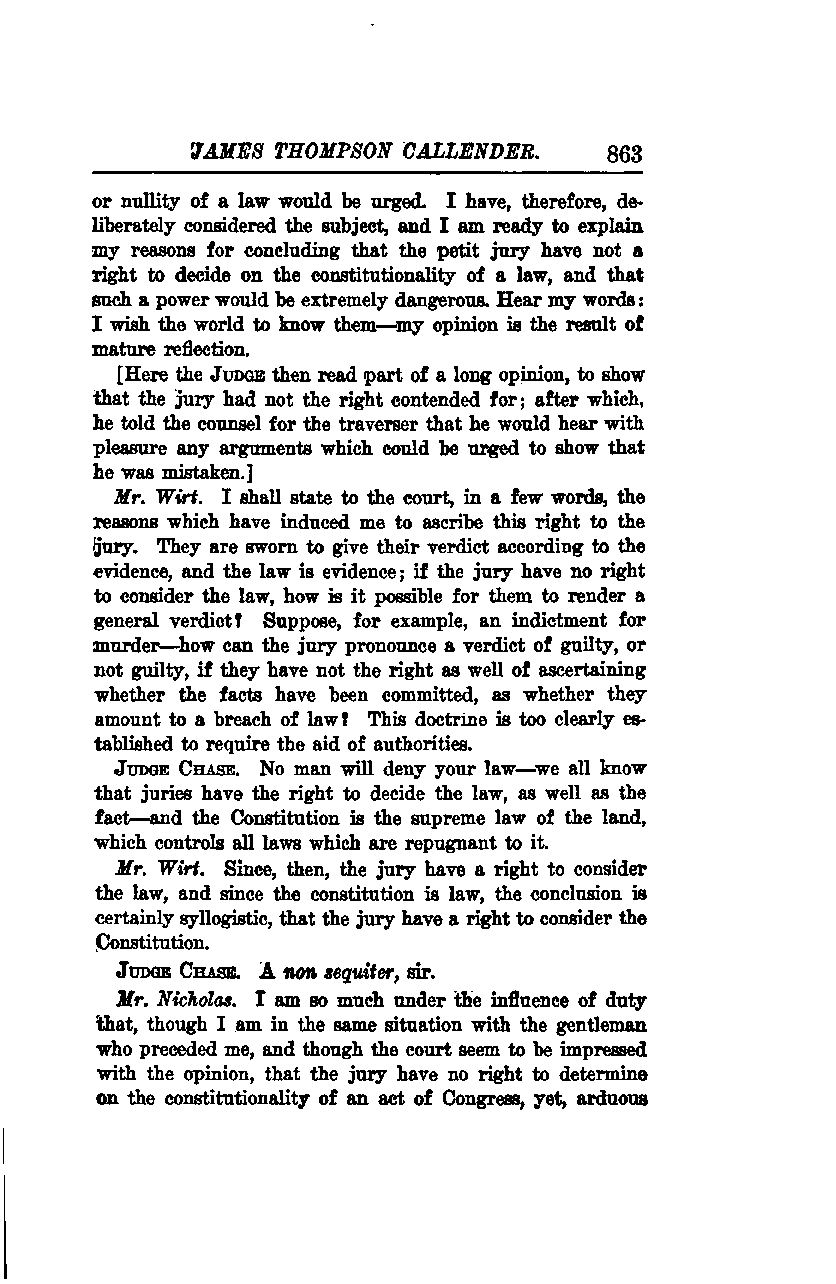
Here is the translated text as follows:
JAMES THOMPSON CALLENDER
The question of whether a petit jury has the right to decide on the constitutionality of a law is one that I have deliberately considered. I am ready to explain my reasons for concluding that the jury does not possess this right and that granting such power would be extremely dangerous. Hear my words: I wish the world to know them—my opinion is the result of mature reflection.
[Here, the judge then read part of a long opinion to show that the jury did not have the right contended for. Afterward, he told the counsel for the traverser that he would hear with pleasure any arguments that could be urged to show that he was mistaken.]
Mr. Wirt: I shall state to the court, in a few words, the reasons which have led me to attribute this right to the jury. They are sworn to give their verdict according to the evidence, and the law is evidence. If the jury has no right to consider the law, how is it possible for them to render a general verdict? Suppose, for example, an indictment for murder—how can the jury pronounce a verdict of guilty or not guilty if they do not have the right to ascertain whether the facts have been committed and whether they amount to a breach of law? This doctrine is too clearly established to require the aid of authorities.
Judge: No man will deny your law—we all know that juries have the right to decide the law as well as the fact. The Constitution is the supreme law of the land, which controls all laws that are repugnant to it.
Mr. Wirt: Since, then, the jury has a right to consider the law, and since the Constitution is law, the conclusion is certainly syllogistic that the jury has a right to consider the Constitution.
Judge: A non sequitur, sir.
Mr. Nicholas: I am so much under the influence of duty that, though I am in the same situation as the gentleman who preceded me, and though the court seems to be impressed with the opinion that the jury has no right to determine the constitutionality of an act of Congress, yet, arduous as it may be...
---